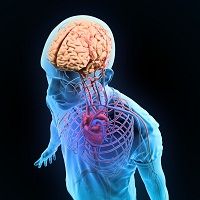Article
Atrial Fibrillation: Rivaroxaban Helps Prevent Stroke and Major Bleeding
Author(s):
The first real-world study of its kind revealed that rivaroxaban, marketed as Xarelto, can reduce the risk of stroke and major bleeding in patients with atrial fibrillation (AF) – a group that is five times more likely to suffer a stroke compared to the general population.

The first real-world study of its kind revealed that rivaroxaban, marketed as Xarelto, can reduce the risk of stroke and major bleeding in patients with atrial fibrillation (AF) — a group that is five times more likely to suffer a stroke compared to the general population.
Principal investigator A. John Camm, MD, and colleagues conducted XANTUS, the first study to analyze non-vitamin K antagonist oral anticoagulant (NOAC) agents in patients with AF. The findings were presented at the European Society of Cardiology (ESC) 2015 Congress conference in London, UK.
“Treatment persistence is especially important as discontinuation of anticoagulation leaves patients with AF unprotected from the risk of stroke,” Camm, a professor of clinical cardiology in the Cardiovascular and Cell Sciences Research Institute at St George’s University of London, said in a news release.
A total of 6,784 patients with non-valvular AF in routine clinical practice were included in the cohort. Their physicians determined treatments and after one year or 30 days after premature discontinuation, 96.1% of the patients did not experience stroke/systemic embolism, emergent major bleeding, or all-cause death. However, 2.1% of the patients experienced emergent major bleeding while on treatment — which were assessed by an independent committee. From the total amount of patients, 0.7% per year suffered a stroke, 0.7% per year had critical organ bleeding, 0.4% per year had intracranial hemorrhage, and 0.2 died from bleeding.
In a previous study, ROCKET AF, patients with moderate to high risk of stroke and an average CHADS2 score of 3.5 were analyzed and incidence of major bleeding in those taking rivaroxaban was 3.6 per 100 person-years. The recent XANTUS analysis included patients with a lower stroke risk and an average CHADS2 score of 2.0. The rate of major bleeding events was also lower with 2.1 per 100-person years.
“The findings reaffirm the positive benefit-risk profile of rivaroxaban established in the phase III clinical trial ROCKET AF, in which rivaroxaban was shown to provide effective stroke prevention with a similar overall bleeding profile and significantly lower rates of the most feared intracranial and fatal bleeds compared with vitamin K antagonists (VKAs),” Camm explained.
Both studies demonstrate the effectiveness of rivaroxaban at preventing stroke and major bleeding events in a real, clinical setting.
“These real-world insights from XANTUS complement and expand on what we already know from clinical trials, and provide physicians with reassurance to prescribe rivaroxaban as an effective and well-tolerated treatment option for the broad range of patients with AF seen in their everyday clinical practice,” Camm concluded.





